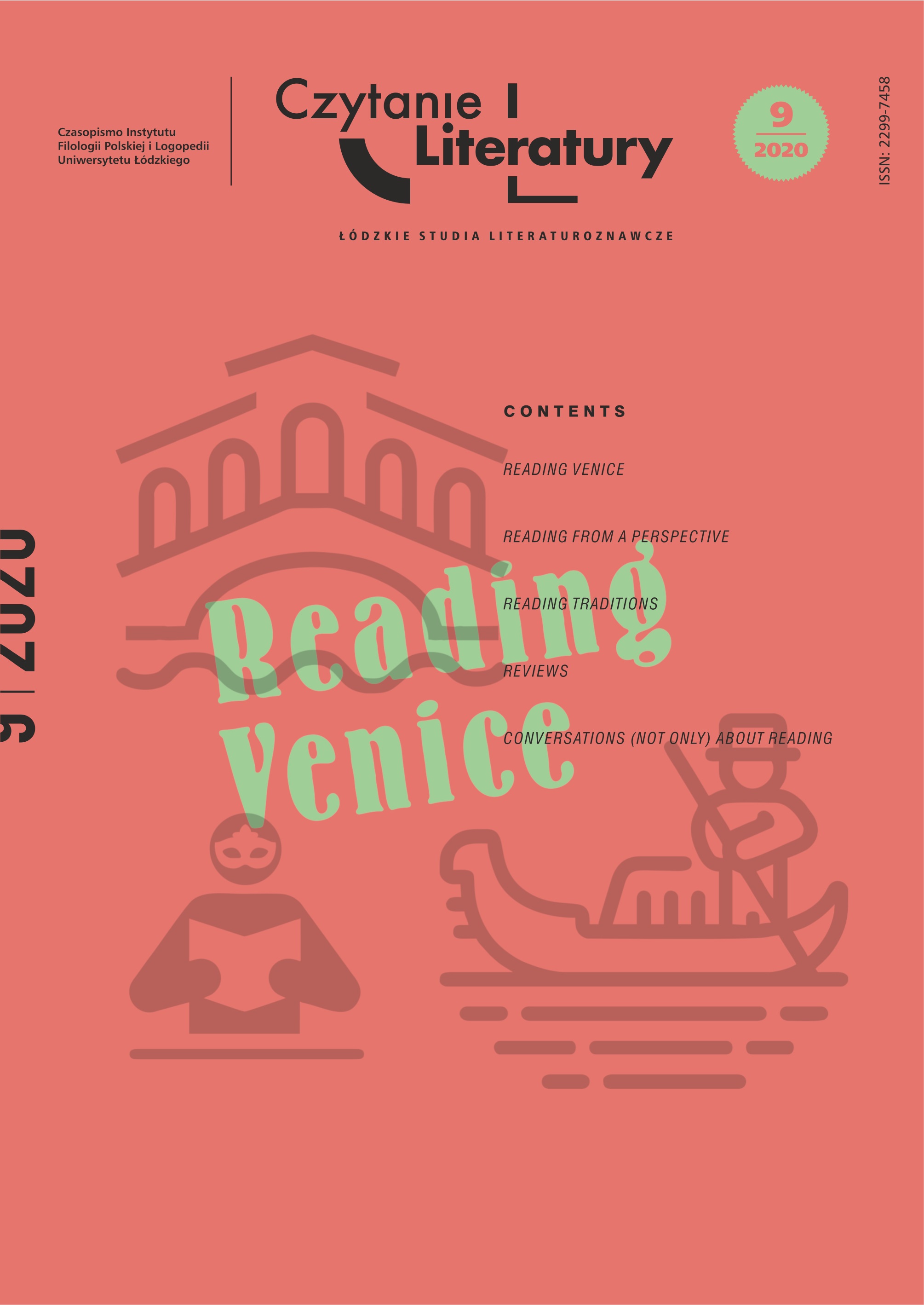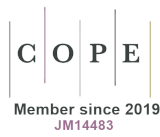The Rules of How Reality Works Through the Prism of Post-Postmodern Prose
(D.I. Drozdovskyi, "Problematic-Thematic Units and Philosophical-Esthetical Parameters of the British Post-Postmodern Novel" ["Проблемно-тематичні комплекси й філософсько-естетичні параметри британського постпостмодерністського роману"]. Kiev: Samit-knyha, 2020)
DOI:
https://doi.org/10.18778/2299-7458.09.18Keywords:
philosophy of literature, British post-postmodern novel, Dmytro Drozdovskyi, carnival, mystery, German Romanticism, theory of the contemporary novelAbstract
The reviewer analyses the monograph Problematic-Thematic Units and Philosophical-Esthetical Parameters of the British Post-Postmodern Novel (Kyiv, 2020) written by Dmytro Drozdovskyi, a Ukrainian scholar from Taras Shevchenko Institute of Literature of the National Academy of Sciences of Ukraine, member of The European Society for the Study of English (Bulgarian branch). In the monograph, the author has outlined the theory of the post-postmodern novel based on the analysis of the key novels of contemporary British fiction (David Mitchell, Ian McEwan, Sarah waters, Mark Haddon, etc.). The review states that the Ukrainian scholar has developed the theory proposed by Fredric Jameson regarding the post-postmodern features of Cloud Atlas and also discusses the concept of meta-modernity as one of the sections in the post-postmodern literary paradigm in the UK. Drozdovskyi argues that meta-modernism cannot be the only term that explains all the peculiarities of contemporary British fiction, which also cannot be outlined as meta-modern but as post-postmodern. The scholar provides a new theory of the novel based on the exploitation of real and unreal historical facts and imagined alternative histories and multifaceted realities. Furthermore, the reviewer pays attention to the contribution this monograph has for world literary studies spotlighting the theory of literary meta-genre patterns, as Drozdovskyi provides a theory according to which literary periods can be divided into those in which the carnival is the dominant meta-genre pattern (like postmodernism) and those that exploit the mystery as the meta-genre pattern (post-postmodernism). The reviewer analyses the key thematic units explained by Drozdovskyi as the key ones that determine the semiosphere of the contemporary British novel (post-metaphysical and post-positivist thinking of the characters, medicalisation of the humanitarian discourse, and the representation of the temporal unity of different realities). The scholar also states that the post-postmodern British novel exploits the findings of German Romanticism and Kant’s philosophy.
Downloads
References
Boinitska, Оlha. English historiographical novel of the late twentieth and early twenty first centuries: the philosophy of the genre. Kyiv, 2016.
Google Scholar
Bovsunivska, Tetiana. Teoriia romanu; navch. posib [Theory of the novel; teach. manual]. Kyiv: VPTs “Kyivskyi universytet,” 2017.
Google Scholar
Drozdovskyi, Dmytro. Problematic-thematic units and philosophical-esthetical parameters of the British post-postmodern novel [Проблемно-тематичні комплекси й філософсько-естетичні параметри британського постпостмодерністського роману], academic editor P. Iwanyszyn. Kyiv: Samit-knyha, 2020.
Google Scholar
Jameson, Fredric. The Antinomies of Realism. London–New York: Verso, 2015.
Google Scholar
Miroshnychenko, Liliia. Projections of skepticism in contemporary British novel: genesis, tradition, poetics. Kyiv, 2015.
Google Scholar
Nealon, Jeffrey. Post-Postmodernism: or, The Cultural Logic of Just-in-Time Capitalism. Stanford: Stanford University Press, 2012.
Google Scholar
DOI: https://doi.org/10.1515/9780804783217
Ovcharenko, Natalia. Post-colonial Projections of Canadian Prose. Odesa, 2018.
Google Scholar
Potnitseva, Tetiana. Izbrannyye istorii iz istorii literatury: monografiya [Selected Stories from the History of Literature: monograph]. Kiyev: Izdatelskiy dom Dmitriya Burago, 2019.
Google Scholar
The Routledge Companion to Twenty-First Century Literary Fiction, edited by Daniel O’Gorman and Robert Eaglestone. London–New York: Routledge, 2018.
Google Scholar
Samuels, Robert. New media, cultural studies and critical theory after postmodernism. Automodernity from Zizek to Laclau. New York: Palgrave Macmillan, 2010.
Google Scholar
DOI: https://doi.org/10.1057/9780230104181
Shalahinov, Borys. “Karnaval i misteriia: rozdumy pro istorychni doli dvokh metaform yevropeiskoho mystetstva” [Carnival and Mystery: Reflections on the Historical Destiny of Two Metaforms of European Art]. Vsesvit, no. 3–4 (2011): 249–255.
Google Scholar
Shalahinov, Borys. Romantychnyi slovnyk: do istori i poniati terminiv rannoho nimetskoho romantyzmu [Romantic dictionary: towards a history of concepts and terms in early German Romanticism]. Kiev: Vydavnycho-polihrafichnyit sentr NaUKMA, 2010.
Google Scholar
Shteinbuk, Felix. “Konverhentsiia toposu identychnosti u suchasnii svitovii literaturi” [Convergence of the Identity Topos in Contemporary World Literature]. In Naukovyi chasopys Natsional’noho pedahohichnoho universytetu imeni M.P. Drahomanova. Seriia 8: Filolohichni nauky (movoznavstvo i literaturoznavstvo) [Scientific Bulletin of M. Drahomanov Pedagogical University. Philological Issues (Linguistics and Literary Studies)], 106–112. Kyiv: Vyd-vo NPU imeni M. P. Drahomanova. 2017, Vyp. 8.
Google Scholar
Tatarenko, Alla. “Budivnychi muzyky i di-dzhei: funktsiia muzyky u formuvanni poetyky postmodernizmu ta post-postmodernizmu (na materiali serbskoi literatury)” [Construction musicians and DJs: the function of music in the formation of poetics of postmodernism and post-postmodernism (based on the material of Serbian literature], 241–252. Musical texture of literary text Intermedial studios (edited by S. Matsenko). Lviv: Apriori, 2017.
Google Scholar
Vermeulen, Timotheus, Van Den, Akker, Robin. “Notes on Metamodernism,” Journal of Aesthetics and Culture, 2.0. (2010): 1–14.
Google Scholar
DOI: https://doi.org/10.3402/jac.v2i0.5677
Downloads
Published
How to Cite
Issue
Section
License

This work is licensed under a Creative Commons Attribution-NonCommercial-NoDerivatives 4.0 International License.










